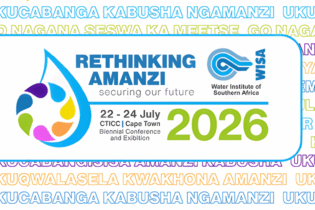by Rejoice Mabudafhasi, deputy minister of Water and Environmental Affairs
Last month, Statistics South Africa released their latest population figures and a range of issues reflecting lifestyles aspects. Some findings have direct impact on our work and need to be analyzed carefully as they constitute an inevitable planning tool. The population growth to 51.8 million people means municipalities have to review their waste management plans to accommodate the additional residents. Stats SA also made an important finding of population movements from poor to rich provinces or urban areas. It stands to reason that the influx of people into some areas will affect the provision of services. In some places, refuse removal trucks may be forced to make two waste collection trips in a week than is normally the case. Needless to say, this affects budgeting, personnel capacity and an urgent need to step up waste recycling to minimize waste dumping on our landfill sites Despite these challenges, I feel comfortable in our strategies because over the past three years we were working hard on overhauling our waste management approach. I’m confident that the plans we have in place are adequate to respond to the challenges of the day. It appears as if our planning was guided by premonition of the future challenges. As you may be aware, cabinet approved the National Waste Management Strategy (NWMS) late last year for implementation by all three spheres of government. I launched the NWMS last month in East London. The Waste Act requires that organs of state implement the NWMS, even though the private sector and civil society also have a role to play in the strategy. It is also not only for the environment department, but has elements which must be carried out by other departments such as the DTI, Water Affairs, Department of Education, Cooperative Governance and so forth. The implementation of waste management strategy makes an emphasis on creating sustainable job opportunities. The 3rd Waste Khoro held last month also observed the need to create jobs as it was held under the theme ‘Creating jobs and increasing efficiencies in the delivery of waste services’. Since waste management is a competency of the third sphere of governance, we are already in discussion with municipalities to start changing their attitude on waste and see waste as money.Waste management has the potential to absorb unemployed people, especially the youth into sustainable jobs and further create more jobs through incorporating the principles of the waste management hierarchy of reduce, reuse, recycle, and recover, resulting in minimal disposal. So much work has already been done and I am delighted to announce that our department will launch the Youth Jobs in Waste before the end of this financial year.
At this point, it is evident that our department is making positive progress in dealing with waste in terms of our policies and implementation. The minister has recently approved the Integrated Waste Tyre Management Plan submitted by the Recycling and Economic Development Initiative of South Africa (REDISA). The Plan seeks to deal with the waste tyre problems whilst incorporating job creation and SMME development, which are government’s top priorities. The implementation of the plan has already started, and we all have to engage with it and see what our role is, particularly for local government. Our department will put systems in place to monitor its implementation and report on progress from time to time. South Africa participated in Rio + 20 Conference on Sustainable Development which took place in Rio de Janeiro, Brazil this year in June. Amongst others, the conference identified the need for job creation and the use of renewable energy. A global transition to a low carbon and sustainable economy can create large numbers of green jobs across many sectors. Waste management is one of the key sectors to drive the green economy. The Department awards prizes according to the two categories namely the metropolitan category and the local municipality category. The monetary value of the awards is the same for both categories. The third place winner will receive R 2, 5 million, the second prize is R 3 million and the first place winner will receive R 3, 5 million. The winners for 2010/2011 Greenest Municipality Competition are: Metropolitan Municipalities- eThekwini
- City of Cape Town
- City of Johannesburg
- Overstrand
- Newcastle
- Steve Tshwete







